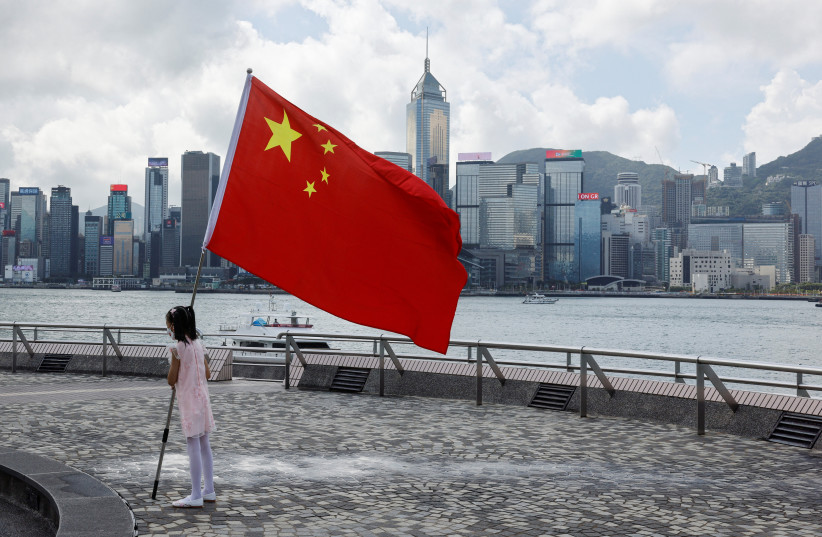Washington – A new report examining China’s security presence in the Middle East suggests that as competition between the United States and China ramps up, the region will again be a key arena.
According to the Washington Institute for Near East Policy report, China’s presence in the region has mirrored its rise as a global power.
“What began as a strategy to advance its economic interests has gradually evolved to include an increasingly expansive array of military-security interactions with the Middle East and North Africa countries,” it reads. “Today, China has put in place the infrastructure for deeper security ties in the region.”
According to the report, to avoid turbulence with longstanding US partners in the region, the United States must establish and communicate to them what it sees as the acceptable parameters of its security relationships with China. “In doing so, Washington can avoid unnecessary escalation with China, maintain its regional network of defense partnerships, and find a way toward a sustainable long-term presence in the Middle East and North Africa.”
“Defense relationships in the Middle East and North Africa – home to some of the world’s largest arms importers – will become complicated as some countries decide to procure weapons from both parties,” the report predicts.
To compete diplomatically with China in the region, the report recommends that the US reverse the 2017 decision to reduce its corps of generals and admirals from 963 to 852 starting in 2023.

“Reports over the summer indicated the chairman of the Joint Chiefs of Staff was recommending fulfilling this requirement by downgrading senior defense official/defense attaché (SDO/DATT) positions around the world, many of whom are one – or two-star generals. This is an inexplicable decision in an era of great power competition, where the global US network of security relationships is a clear advantage.”
It also calls on the US to expeditiously identify and convey the risks a relationship with China may have on security cooperation with the United States. “Without doubt, some countries in the region will seek to balance between security cooperation with the United States–in the form of security commitments, procurement, joint exercises, and intelligence sharing – and a closer relationship with China,” the report reads. “As the UAE example shows, however, there are limits to this balancing act. Countries that partner with Huawei in their 5G networks, purchase advanced Chinese platforms, and allow secret Chinese military installations likely present too much risk to acquire the most advanced US weaponry. Washington should make that point repeatedly to partners in the region looking to deepen their ties to China.”
“There’s a strong argument to make that Israel was the first true trial run of what happens when the US shifts its focus to great power competition in the Middle East,” says Grant Rumley, the report’s author.
Who is the Grant Rumley?
Rumley previously served in both the Trump and Biden administrations as an adviser for Middle East Policy in the Office of the Secretary of Defense in multiple roles, including as deputy chief of staff, Syria director, Jordan director, and Israel director.
He gave as an example the Haifa Port saga. “Israel announces the Haifa Bayport arrangement with the Shanghai International Port Group (SIPG) at around the same time the Pentagon releases the National Defense Strategy and says competition with China and Russia is our principal priority. This immediately raised some alarms in DC, because here was our closest partner in the region signing an agreement with a Chinese entity over a facility the US has used for military purposes in the past,” said Rumley.
“There was this, perhaps naive, sense in DC that since we had shifted our focus to great power competition, our partners should do the same ASAP,” he continued. “And obviously that hasn’t been the case for a lot of partners. Some partners have shifted or are shifting, but others are simply going to hedge their bets and try to maintain ties with both the US and China and Russia.”
He went on to say that for Israel, which has clearly prioritized its relationship with the US, the course correction was quick. “Israel started screening Chinese investments and coordinating more with the US on this front. I think that’s the model framework for countries in the region and around the world that have some economic relationship with China but want to keep the US as their primary security partner.”
Asked whether he believes that the US would pursue a similar path with other countries, he said that a lot of countries want closer security coordination with the US, including faster arms deliveries and access to new and previously-unavailable platforms, but when they don’t get this, “some have shown a willingness to turn to alternative sources.”
“I think the US would be willing to explore putting these types of things on the table to keep them from looking elsewhere, but we’d want assurances that our proprietary information wouldn’t be at risk if a country chose to turn to China or Russia,” he said.
“These types of assurances are possible, I think, when both sides have consistent and frank discussions early where we set the parameters of what would and wouldn’t jeopardize closer security coordination with the US. I think the US and Israel have established this understanding, and I do think the US is looking at that as a potential model for moving forward with other partners,” he added.
